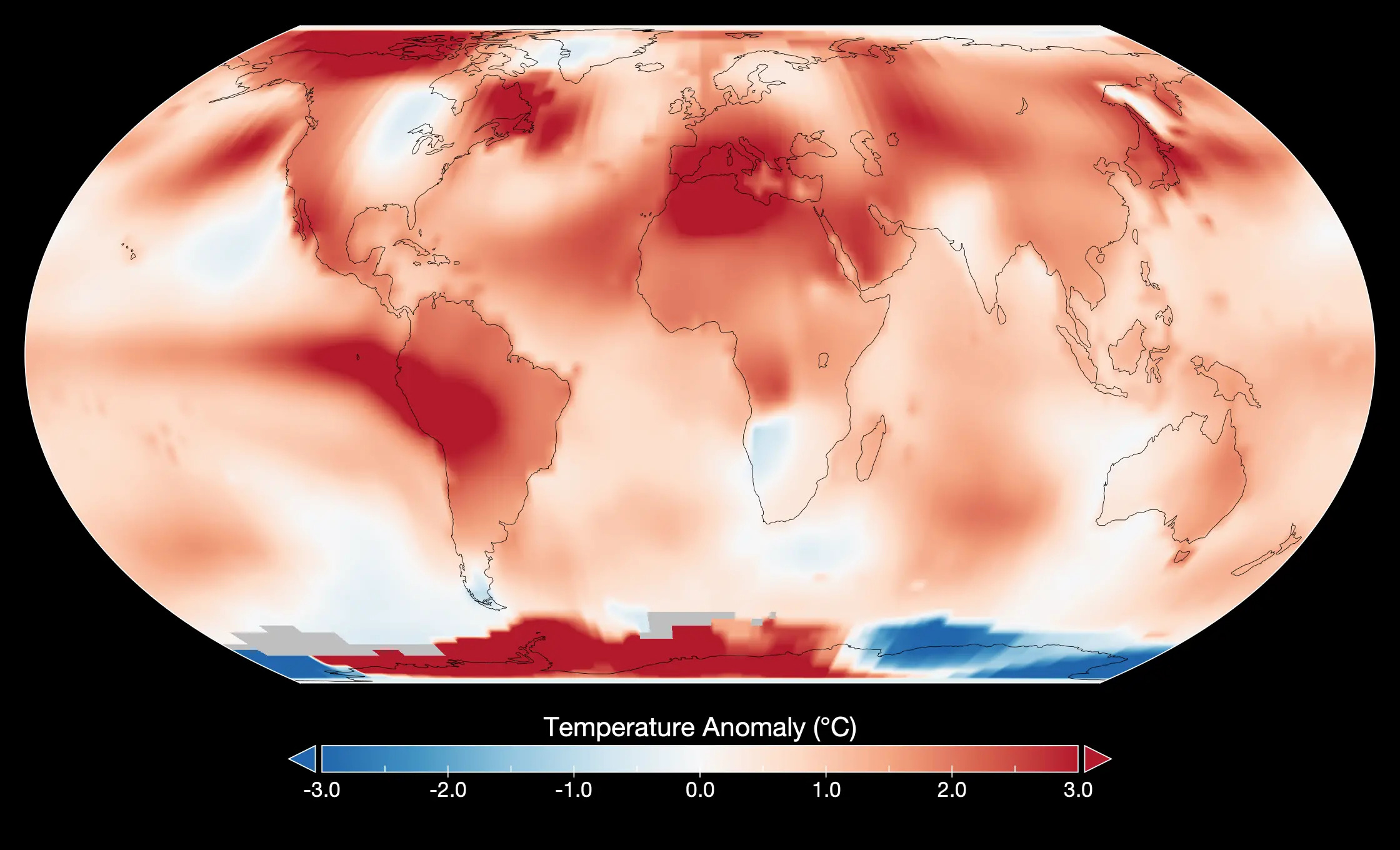Scientists at NASA's Goddard Institute for Space Studies (GISS) in New York say that July 2023 surpassed all previous months in the historical global records for high temperatures.
Globally, July 2023 exhibited a temperature increase of 0.43°F (0.24°C) compared to any previous July in NASA's historical data. Additionally, it registered a warming of 2.1°F (1.18°C) compared to the average July temperatures from 1951 to 1980. The main emphasis of the GISS analysis is on examining temperature shifts over extensive time spans, spanning decades and even centuries. Using a consistent reference period produces anomalies that remain reliable over time. "Normals" for temperatures are typically defined by periods that encompass several decades or more, often around 30 years.
For people across the globe, the impact of rising temperatures can be experienced in many different ways:

For farmers, the impact can be increased drought, unpredictable weather, and otherwise lower crop yields. In some parts of the world, it might mean that the land is no longer suitable for farming, leading to climate refugees who must seek new places to live.

In forested areas, rising temperatures can lead to a longer fire season with greater risk of forest fires that threaten homes and lower air quality.

For urban dwellers, it means that air conditioning becomes increasingly necessary for comfort and in some instances, survival of intense heat waves. This leads to greater amounts of electricity consumption, and therefore new emissions.
“Climate change is impacting people and ecosystems around the world, and we expect many of these impacts to escalate with continued warming. Our agency observes climate change, its impacts, and its drivers, like greenhouse gases, and we are committed to providing this information to help people plan for the future.” – Katherine Calvin, chief scientist and senior climate advisor at NASA Headquarters in Washington
 The presented map illustrates temperature anomalies across the globe for July 2023 as per the GISTEMP analysis conducted by researchers at NASA's Goddard Institute for Space Studies. These anomalies in temperature depict the disparity between July 2023 and the typical July temperatures observed between 1951 and 1980. | Credit: NASA’s Goddard Institute for Space Studies | Image source: climate.nasa.gov
The presented map illustrates temperature anomalies across the globe for July 2023 as per the GISTEMP analysis conducted by researchers at NASA's Goddard Institute for Space Studies. These anomalies in temperature depict the disparity between July 2023 and the typical July temperatures observed between 1951 and 1980. | Credit: NASA’s Goddard Institute for Space Studies | Image source: climate.nasa.gov
Certain regions of South America, North Africa, North America, and the Antarctic Peninsula encountered notable heat, with temperature surges reaching approximately 7.2°F (4°C) beyond the norm. Collectively, the intensified heat during this summer subjected tens of millions of individuals to heat advisories and was associated with numerous cases of heat-related ailments and fatalities. This unprecedented July is part of an enduring pattern of human-induced warming primarily stemming from the emission of greenhouse gases, which has progressively manifested over the last four decades. According to data provided by NASA, the most scorching Julys since 1880 have all occurred within the past five years.
NASA compiles its temperature records using surface air temperature data sourced from a vast network of meteorological stations, in addition to sea surface temperature measurements collected through ship- and buoy-based instruments. The raw data is subjected to analysis techniques that accommodate the diverse distribution of temperature stations worldwide, while also addressing potential distortions in calculations caused by urban heat influences.
“This July was not just warmer than any previous July – it was the warmest month in our record, which goes back to 1880. The science is clear this isn’t normal. Alarming warming around the world is driven primarily by human-caused greenhouse gas emissions. And that rise in average temperatures is fueling dangerous extreme heat that people are experiencing here at home and worldwide.” – GISS Director Gavin Schmidt
Given how quickly the planet is warming and the clear connection between greenhouse gasses and climate change, we need solutions at every level of society: government, corporations, and individuals.
At Untonne, we’re chipping in too. Our approach to addressing the climate challenge is three-fold:
- Educate subscribers about the state of climate change
- Inspire subscribers to take direct action to make a difference
- Support high-impact carbon reduction projects that lower emissions globally for people without the means to do it alone
We hope that these blogs keep you informed and up to speed on what Untonne is doing, and inspired to take additional climate action! In addition to reading our blogs, please consider subscribing to our monthly newsletter and emission reduction plans! Together, we can help close the gap between what is being done today and what is needed for a healthy planet!
Source: https://climate.nasa.gov/news/3279/nasa-clocks-july-2023-as-hottest-month-on-record-ever-since-1880
